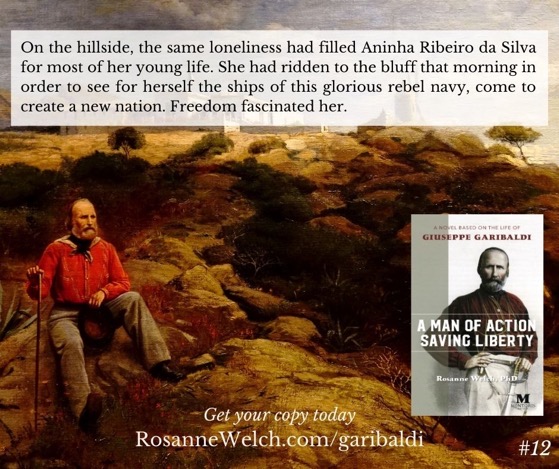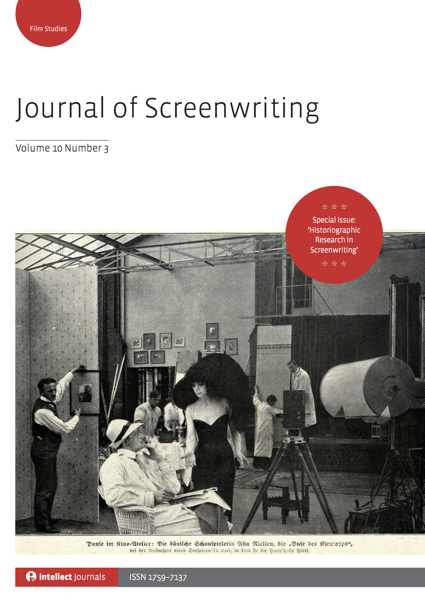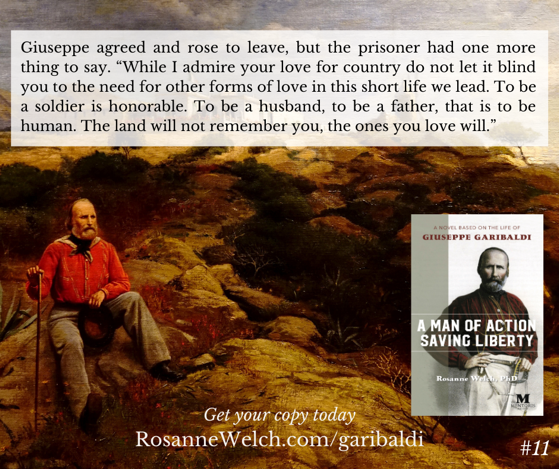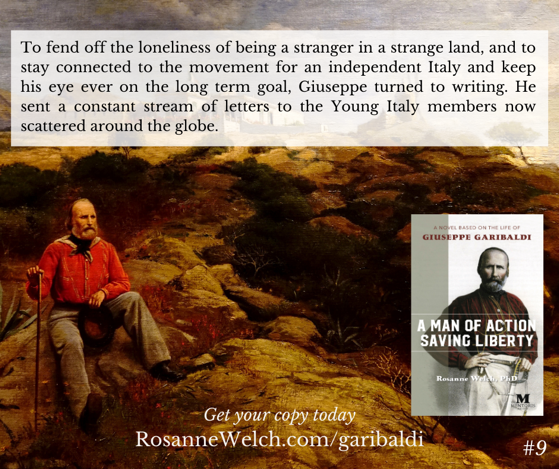On the hillside, the same loneliness had filled Aninha Ribeiro da Silva for most of her young life. She had ridden to the bluff that morning in order to see for herself the ships of this glorious rebel navy, come to create a new nation. Freedom fascinated her.
Category: Mentoris
From The Journal Of Screenwriting V3 Issue 1: Irish cinema 1994–2009: The trajectory of script development policy at the Irish Film Board by Díóg O’Connell
Highlighting the articles in the past editions of the Journal of Screenwriting, of which I am the Book Reviews Editor. Hopefully these abstracts will entice you to did a little deeper into the history and future of screenwriting. — Rosanne
This article explores the changing nature of public policy in Ireland, 1994–2009, as it relates to film and scriptwriting practice. The dominant discourse in Irish cinema studies has centred around ideas of identity, national identity in particular with more recent studies branching off in the direction of genre studies, political economy and narrative studies. This article is framed, broadly speaking, within a political economy discourse, by way of exploring how Irish Film Board policy changed over a specific period as a result of internal and external factors, shaping a structure that would determine how Irish scriptwriters related to the wider field of film production. Through a survey of Irish Film Board policies, newspaper articles and annual reports, this article presents a general historical overview of an evolving film policy as it related directly to scriptwriting and script development. Against this backdrop, other questions surface about Irish cinema and scriptwriting practice, particularly questions centred on local/global issues.
The Journal of Screenwriting is an international double-blind peer-reviewed journal that is published three times a year. The journal highlights current academic and professional thinking about the screenplay and intends to promote, stimulate and bring together current research and contemporary debates around the screenplay whilst encouraging groundbreaking research in an international arena. The journal is discursive, critical, rigorous and engages with issues in a dynamic and developing field, linking academic theory to screenwriting practice.
Get your copy and subscription to the Journal of Screenwriting Today!
* A portion of each sale from Amazon.com directly supports our blogs
** Many of these books may be available from your local library. Check it out!
Kirkus Review of A Man Of Action Saving Liberty: A Novel Based On The Life Of Giuseppe Garibaldi by Dr. Rosanne Welch
It’s always nice to read a positive review of a newly published book so when the Kirkus Review of my new book on the life of Giuseppe Garibaldi said it was “A wonderfully researched and dramatically gripping work of historical fiction” I smiled.
Research IS my middle name these days and ‘gripping’ is what’s needed for the pace when one is documenting such an epic life so that it doesn’t feel like it is just meandering from battle to battle with no story growth.
The book gave me the chance to finally delve deeply into Garibaldi and Anita’s lives and come to a deeper understanding of the revolution that united Italy. — Rosanne
“A novelistic biography of the 19th-century Italian general who devoted his life to the unification of Italy.
Giuseppe Garibaldi was raised in Nice, an Italian territory in Piedmont held by the French. His mother nevertheless insisted, against convention, that he learn to read Italian and to zealously assert his independence. After an aborted attempt to follow in his father’s footsteps and become a sailor, Garibaldi joined the Young Italy movement under the direction of Giuseppe Mazzini and agitated for Italian independence. As a result, he was sentenced to death and was forced to flee to South America, an exile that lasted more than a decade.
While in Brazil, he discovered thousands of misplaced Italians, and he recruited them to participate in the Ragamuffin War to establish a republican experience that prepared him for the wars of independence in Italy later. Also, he fought in the Uruguayan civil war before finally returning to Italy intoxicated by the dream of Italian independence and unification—a devotion stirringly portrayed by Welch.
He formed a group of volunteers, called the Hunters of the Alps, to fight in the Second Italian War for Independence and later participated in the Expedition of the Thousand in Sicily, successfully establishing Victor Emmanuel II as king.
Welch’sresearch is impeccably rigorous. She captures the minute details of Garibaldi’s life, the machinations of military strategy of the period, and the atmosphere of both 19th-century Italy and South America. One could quibble that the accumulating, granular detail finally becomes daunting to digest. However, her prose is reliably lucid and sometimes achieves genuine poignancy, particularly in the representation of Garibaldi’s indefatigable fervor: “Italy will not truly exist as a nation until her flag, symbolizing the unity and freedom of the former Roman Empire, flies from the Capitol in Rome.
”A wonderfully researched and dramatically gripping work of historical fiction.” – Kirkus Reviews
“A Man Of Action Saving Liberty: A Novel Based On The Life Of Giuseppe Garibaldi” – 11 in a series
Giuseppe agreed and rose to leave, but the prisoner had one more thing to say. “While I admire your love for country do not let it blind you to the need for other forms of love in this short life we lead. To be a soldier is honorable. To be a husband, to be a father, that is to be human. The land will not remember you, the ones you love will.”
From The Journal Of Screenwriting V3 Issue 1: The constructive use of film genre for the screenwriter: The relevant knowledge component of the mental space of film genre by Jule Selbo
Highlighting the articles in the past editions of the Journal of Screenwriting, of which I am the Book Reviews Editor. Hopefully these abstracts will entice you to did a little deeper into the history and future of screenwriting. — Rosanne
This exploration is a continuation of my work on the ‘mental space of film genre’, a term I have coined to introduce a terminology to investigate the use of film genre for the screenwriter as he or she constructs a screenplay. Understanding this use of film genre may add to the screenwriter’s other technical skills such as knowledge of story structure and character construction. I have previously delineated the first two elements of the mental space of film genre in the second issue of the Journal of Screenwriting – schematic knowledge (the use of film genre as a framing device) and specific knowledge (the understanding of film genre the audience brings to the viewing of filmic narratives). This work will then focus on what I believe to be the important third element of the mental space of film genre – relevant knowledge.
The Journal of Screenwriting is an international double-blind peer-reviewed journal that is published three times a year. The journal highlights current academic and professional thinking about the screenplay and intends to promote, stimulate and bring together current research and contemporary debates around the screenplay whilst encouraging groundbreaking research in an international arena. The journal is discursive, critical, rigorous and engages with issues in a dynamic and developing field, linking academic theory to screenwriting practice.
Get your copy and subscription to the Journal of Screenwriting Today!
* A portion of each sale from Amazon.com directly supports our blogs
** Many of these books may be available from your local library. Check it out!
Mentoris Project Podcast: A Man Of Action Saving Liberty: A Novel Based On The Life Of Giuseppe Garibaldi with Author, Dr. Rosanne Welch [Audio]
Read A Man Of Action Saving Liberty: A Novel Based On The Life Of Giuseppe Garibaldi
Podcast: Play in new window | Download
Subscribe: RSS
Subscribe Via iTunes | Google Play | TuneIn | RSS
For the love of country. For the love of freedom. For the love of a woman. He fought.
Giuseppe Garibaldi yearned for a world of equality, liberty, and freedom for all nations, races, and genders. America had long claimed her independence from England, yet his beloved Italian peninsula was in a never-ending state of instability and war as the Austrian Empire, French, Church, and regional kingdoms wrestled for power.
Forced into exile, Garibaldi’s resolve to unify his homeland into the sovereign nation of Italy led him on adventures that spanned the continents. On sea, horseback, and foot, he confronted pirates, clashed with South American gauchos, and commanded his loyal volunteer army of thousands—the “Redshirts”—with dignity, clarity, and courage.
But one of the most revered generals in history was as vulnerable to loss, failure, and heartache as any man. Perhaps Garibaldi’s greatest battle was the one in his heart as he struggled to hold onto the love of his life—the revolutionary woman always by his side, both on and off the battlefield.
Follow @mentorisproject on Instagram
Visit the Mentoris Project for more!
Also from the Mentoris Project
Want to use these books in your classroom? Contact the Mentoris Project!`
“A Man Of Action Saving Liberty: A Novel Based On The Life Of Giuseppe Garibaldi” – 10 in a series
As they could not yet return to Italy, the two became embroiled in the cause of creating the Republic of Rio Grande do Sul, a region of Brazil which wanted to separate from Brazil in 1835. Named the Ragamuffin War for the the fringed leather worn by the gaucho farmers who began it, the war became a cause close to Giuseppe’s heart.
From The Journal Of Screenwriting V3 Issue 1: Poetic dramaturgy in Andrey Tarkovsky’s Ivan’s Childhood (1962): Conflict and contrast, two types of narrative principles by M.-R. Koivumäki
Highlighting the articles in the past editions of the Journal of Screenwriting, of which I am the Book Reviews Editor. Hopefully these abstracts will entice you to did a little deeper into the history and future of screenwriting. — Rosanne
This article aims to define certain characteristics of so-called poetic dramaturgy by analysing sequences from Andrey Tarkovsky’s first feature film Ivan’s Childhood (1962). The essential elements of classical dramaturgy as proposed by Aristotle are problem (conflict), cause and effect, turning points and a closed ending, and writerscontinue to use such elements in their writing. I am interested in whether or not it is possible to define the features of poetic dramaturgy in a similar way so that they too are incorporated into the writer’s craft. In this article, I will focus on one frequently occurring expressive cinematic element in Ivan’s Childhood – upward–downward movement. Through dramaturgical analysis, my aim is to reveal the dramaturgical system associated with this movement. The deviations from classical dramaturgy are of interest to me, and I will consider them as evidence of poetic dramaturgy. My contention is that there is an immanent system in Tarkovsky’s film that clearly differs from classical dramaturgy and which we can define as poetic. In addition, this article aims to analyse the nexus between word and image in the screenplay and film, with the intention of understanding whether the poetic dramaturgy has been defined in (written into) this particular screenplay or whether it is something that the director has introduced into the film.
The Journal of Screenwriting is an international double-blind peer-reviewed journal that is published three times a year. The journal highlights current academic and professional thinking about the screenplay and intends to promote, stimulate and bring together current research and contemporary debates around the screenplay whilst encouraging groundbreaking research in an international arena. The journal is discursive, critical, rigorous and engages with issues in a dynamic and developing field, linking academic theory to screenwriting practice.
Get your copy and subscription to the Journal of Screenwriting Today!
* A portion of each sale from Amazon.com directly supports our blogs
** Many of these books may be available from your local library. Check it out!
“A Man Of Action Saving Liberty: A Novel Based On The Life Of Giuseppe Garibaldi” – 9 in a series
To fend off the loneliness of being a stranger in a strange land, and to stay connected to the movement for an independent Italy and keep his eye ever on the long term goal, Giuseppe turned to writing. He sent a constant stream of letters to the Young Italy members now scattered around the globe.
From The Journal Of Screenwriting V3 Issue 1: ‘To see a script’: Jean-Luc Godard’s re-envisioning of screenwriting in Passion (1982) and Scénario du film Passion (1982) by Jill Murphy
Highlighting the articles in the past editions of the Journal of Screenwriting, of which I am the Book Reviews Editor. Hopefully these abstracts will entice you to did a little deeper into the history and future of screenwriting. — Rosanne
In the film Passion (1982) and its video scenario, Scénario du film Passion (1982), Jean-Luc Godard attempts to re-envision the conventional script by placing an emphasis on visual rather than verbal forms. In this article, I examine Godard’s development of narrative through image in Passion and his description of this process in Scénario du film Passion. In addition, I consider the concurrent emphasis he places on the visualization of narrative in the diegetic film around which the storyline of Passion is based. To contextualize the process of narrative construction that Godard applies in the films considered in the article, I present some earlier examples of his screenwriting practice that illustrate how Godard’s screenwriting evolved towards an image-based approach.
The Journal of Screenwriting is an international double-blind peer-reviewed journal that is published three times a year. The journal highlights current academic and professional thinking about the screenplay and intends to promote, stimulate and bring together current research and contemporary debates around the screenplay whilst encouraging groundbreaking research in an international arena. The journal is discursive, critical, rigorous and engages with issues in a dynamic and developing field, linking academic theory to screenwriting practice.
Get your copy and subscription to the Journal of Screenwriting Today!
* A portion of each sale from Amazon.com directly supports our blogs
** Many of these books may be available from your local library. Check it out!




![Mentoris Project Podcast: A Man Of Action Saving Liberty: A Novel Based On The Life Of Giuseppe Garibaldi with Author, Dr. Rosanne Welch [Audio]](https://rosannewelch.com/wp-content/uploads/2020/11/mentoris-rmw.png)














